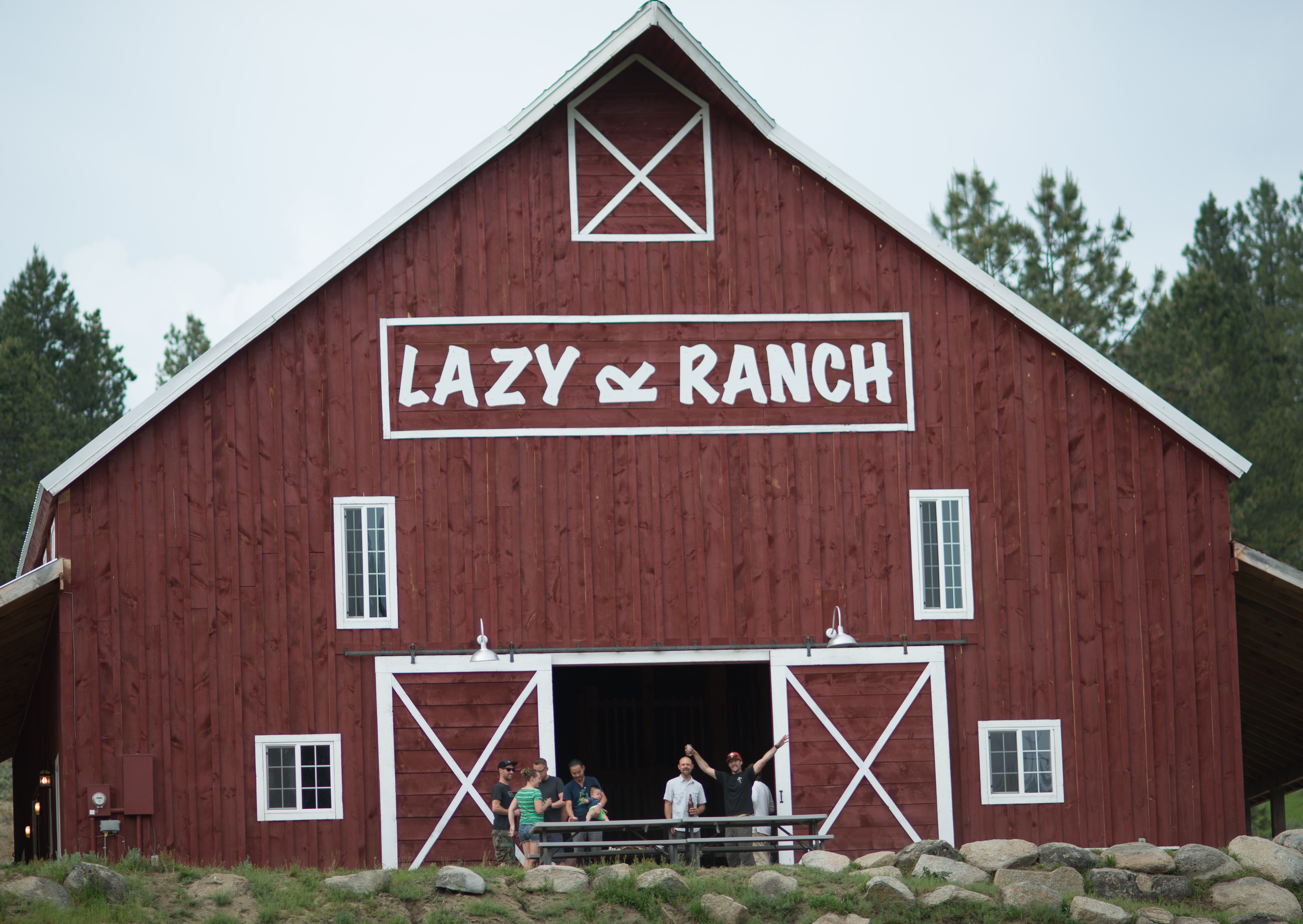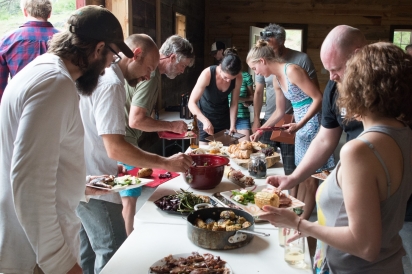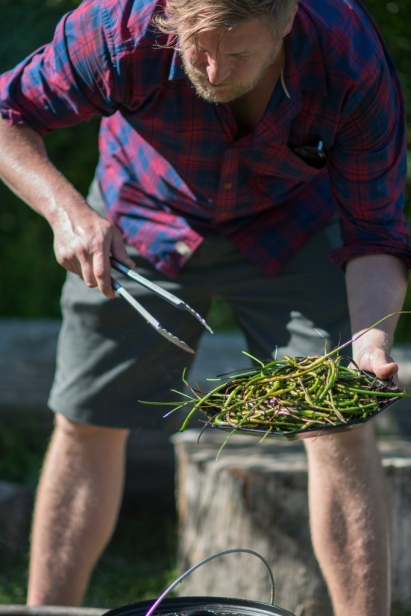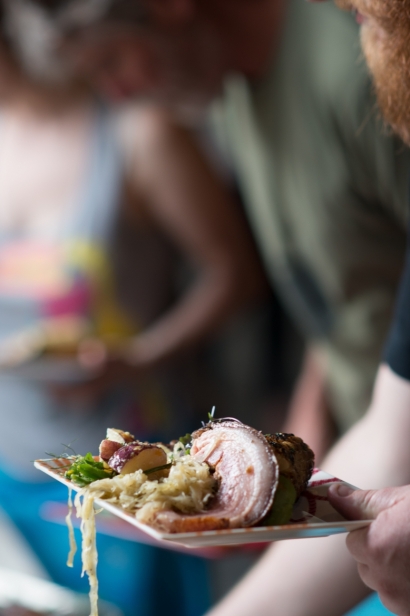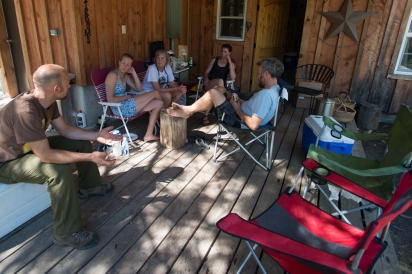COOKIN’ UP COMMUNITY: An outdoor feast with more on the menu than great food
Pine- and pork-scented smoke curls into the trees as cast-iron pots and pans clatter over a wood fire. Guests cool their feet in a nearby stream, clinking frosty glasses and laughing. At first glance, you might mistake this for just another summertime cookout in the mountains of Idaho.
Yet organizer Chris Florence is quick to point out one of several unique features of this particular June get-together. With a rhetorical grin he asks, “Who’s got three James Beard chefs in the same place cooking on a campfire?” That would be Nate Whitley of the Modern Hotel and Bar, Kris Komori of State & Lemp and Briar Handley of Handle, in Park City, Utah—all James Beard Award nominees—hovering over that fire.
You might also mistake this for some kind of “Iron Chef ” competition.
For the third year in a row, Chris Florence, professional forager and owner of Sweet Valley Family Farms, has invited a handful of chefs, producers and other local food movers and shakers to the mountains near Banks for a weekend, not of reality-TV-type competition, but of community building.
“We’re all slaving tirelessly, day after day, to try to make a go at this,” Florence says of those working in the local food movement. “We need to stay connected like this because it validates what you’re doing, it refills your passion to keep on doing it, because what we’re running on is passion. Nobody is getting rich doing this.”
Florence should know. Passion has kept him hitting the issue of local food from every angle he can. He has worked as a chef, farmer and forager; he has researched the potential of tomato processing facilities and local food hubs; he has sold mushrooms at farmers markets; he has built his own small-scale food distribution network. None of which was easy.
“It feels like a war out there when you’re competing against big corporations,” he says. “It’s easy to feel unappreciated and to get bitter about it. But when you spend time with people who are as passionate about it as you are, it helps to mitigate that so we can hang on.”
It’s also fun.
“It was super fun,” echoes Kate Leadbetter of Meriwether Cider in Garden City. “I mean, it was world-class chefs and cider in a beautiful, beautiful setting. And it felt like, ‘Oh my gosh, things are happening and we’re becoming a community.’”
“I think people in the industry,” she continues, “are so entrenched in their work that there isn’t a lot of time to get away and to educate and broaden your scope in the field that you’re in. You do need to get away from the box that you’re in and interact with other people who have good ideas. I think it’s incredibly valuable.”
On the porch of one of the cabins, Leadbetter and the rest of the Meriwether clan talks with Remi Courcenet, food and beverage manager
of the Modern Hotel, while Chris Florence fries up some camas bulb fritters he’d foraged near Fairfield and one of the crew from Handle puts together an elaborate, house-cured charcuterie plate. Down by the fire, others tend pheasant confit, two glistening rounds of porchetta and a glorious pot of baked beans.
“I did a new potato salad with snap peas and some smoked trout with grilled garlic scapes,” says Nate Whitley of The Modern. And because
Florence had foraged a bunch of fresh porcini, Whitley also threw together a porcini carpaccio.
“That was one thing that really stuck out to me,” says Florence. “We had seven chefs preparing dishes with no coordination whatsoever and somehow everything went together. I think that’s because everybody who was there is committed to seasonality and when you cook things that are in season, they tend to all go together.”
Florence sees that as nothing less than a culinary sea change.
“Ten or 15 years ago at one of these events, it would have been tuna tartare and mango salsa and that was how people used to show their skills. But now people are more concerned with supporting local food; chefs are more concerned with supporting local food.”
As good as the food was—and it was very good—the camaraderie was more striking. Here was a cluster of food professionals who know better than most how hard it is to make a positive change in what is still a heavily industrialized, often impersonalized American food system. Chris Florence’s annual event is designed to make it a little less so, to entice food people to step away from their individual kitchens for a weekend, to share meals and ideas and remind themselves that they are part of something much larger and more important: a budding local food community.


